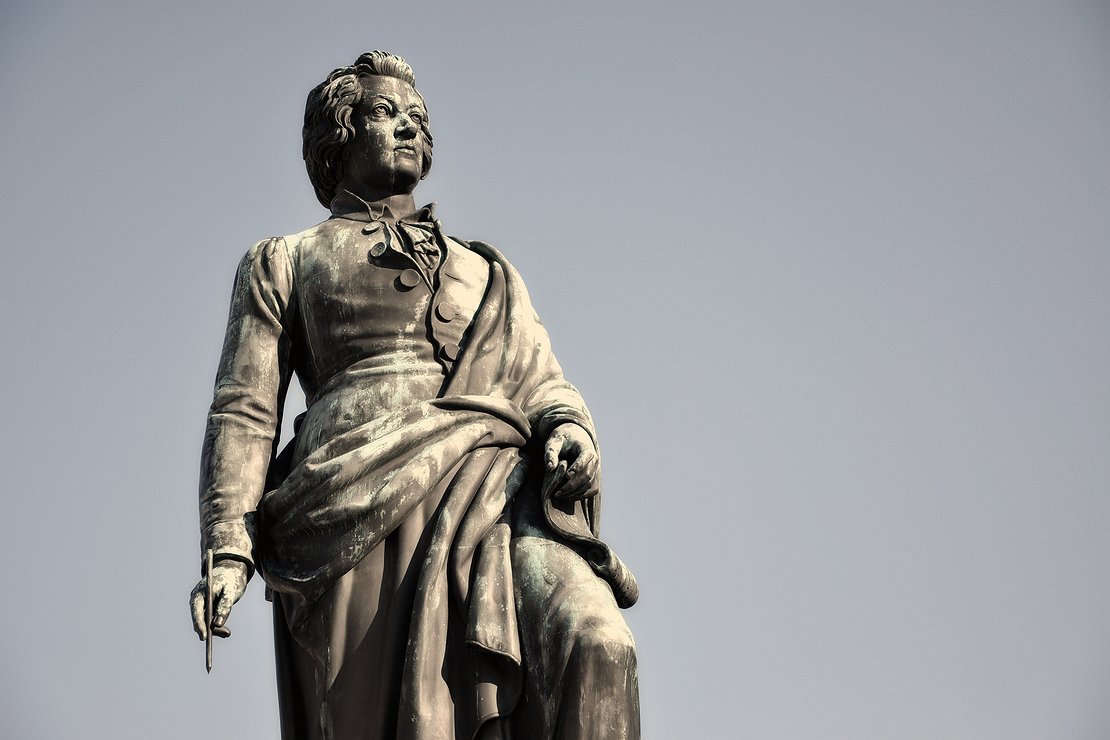
The Individual, Society, and the State:Is ‘Society’ a Mere Phantom?
Since I have been associated several times with the position ‘there are only individuals,’ I begin with a confession: No, this is not my position, I have also never and nowhere represented it. Only someone who has never read a word of mine, and instead projects and claims a supposedly classical liberal or libertarian position as being mine, can associate me with it.
That the whole is more than the sum of its parts is a principle of Gestalt psychology to which I feel bound. But this principle is not limited to psychological processes. Even the concept of ‘property,’ so central to classical liberal and libertarian thought, only makes sense if there is more than one human individual: it has an unavoidably social character. ‘Property’ is a concept pertaining to social relationship. The market and the division of labour associated with it clearly show that the whole is more than the sum of its parts: If everyone muddles through on their own, all the isolated individuals produce much less in total than if they are working together; if there is specialized production but no common exchange, all that work is apparently meaningless and worthless. Of course, the argument also applies the other way round: without the individual and his or her commitment, the whole thing amounts to nothing.
Another example is language. In terms of both developmental psychology and function, language has always related to society. An isolated human individual does not acquire language, does not develop language. But without a speaker, language can't exist either. The speaker encounters a certain language, uses it and at the same time changes it to some extent. His language must be sufficiently rule-compliant that the others with whom he is (or wants to be) in conversation understand him, and he can adapt it as necessary for his own communication needs, in order to express what he intends.
On the other hand, there are in reality also numerous negative social effects on the individual. These negative effects are linked to the concepts of group pressure (a group wants the individual to act differently than he wishes), crime (infliction of harm) and above all the state: systematically and with the help of a monopolised threat of violence, this ‘group’ that has become a system exerts pressure on a large number of individuals and can inflict harm on them with impunity. In the highly complex system of statism, the effect of violence is far removed and often difficult to analyse. The anger of the individual buyer is directed against the individual baker who has ‘made’ the rolls more expensive, even if the price rise is not due to individual greed, but to government measures such as tax increases, inflation or the expansion of cost-intensive regulations.
All this seems trivial, no more than truisms. The debate takes a remarkable ideological turn when the concept of ‘society’ (‘community,’ ‘group identity,’ ‘culture,’ ‘family’) is to serve as justification for coercion. From time immemorial, the reference to the fact that man is a ‘social being’ and dependent on society has served to justify the assertion that ‘therefore’ the king or the state is necessary. Another use of the word ‘society’ tends to absolve individuals from responsibility for their actions, and instead to attribute to ‘society’ the responsibility that caused the individual to act in such a way. It is this ideological sense of the word ‘society’ as a euphemism for state authority and the shift in responsibility, against which Ludwig von Mises stated (sometimes quoted by Murray Rothbard) that there is no societal ‘entity,’ that is, society is not a ‘thing’ and certainly not a ‘body’ with its own will.
However, the examples of market and language make it clear that society does not have to exist as a supreme ‘body’ (central power) in order to establish social conditions: Society arises from the voluntary interactions of individuals. Those who claim from the fact of social conditions that it follows there must be a state authority, and that this is justified, are actually claiming that there is no sociality other than forced sociality, which is obviously not the case. Those who argue that there is no society at all can no longer explain how the division of labor (capitalism) leads to prosperity, or indeed how a community of language speakers is formed at all.
The antagonism does not arise between society and the individual, but between the society which arises from voluntary interaction between individuals, and the society which is determined by a central power.
At this point conservatives and traditionalists argue that there’s a multitude of non-state social relationships into which the individual didn’t actively enter, but into which they were born. This, too, is usually only a transitional argument toward the claim that the state can arise from these allegedly ‘non-voluntary’ social conditions, and that it is only one among these conditions and must not be criticized for its violations of voluntariness. But this line of argument fails to recognize that the criterion for voluntariness is not the entry into a social relationship (each individual is born into existing social conditions), but the right to leave it.
Please note: the ‘right to leave’ does not mean that a withdrawal is possible in all circumstances, but only that an attempt at withdrawal is not prevented by the threat of violence. For example, a member of a polar expedition who has voluntarily joined it could leave the group only by risking death; but he is not forced by any other member to continue to participate in the expedition. Or a member of a language community into which he was born may be unable to learn another language well enough to make himself understood, but is not forced at gunpoint by a speaker of his mother tongue to continue to use it. These examples are to be contrasted with the threat of death against someone ‘renouncing’ a faith (regardless of whether he was born into it or voluntarily joined it earlier). Or with the claims, enforced by penalty, for tax payment, payment of the TV license, complying with smoking bans, carrying an identity card or passport and so on.
The assertion that a distinction cannot be made between a voluntary and a forced shaping of societal conditions plays into the hands of the perpetrators of violence: this is how they receive absolution.
Translated from eigentümlich frei, where the original article was published on 20th July 2018.




